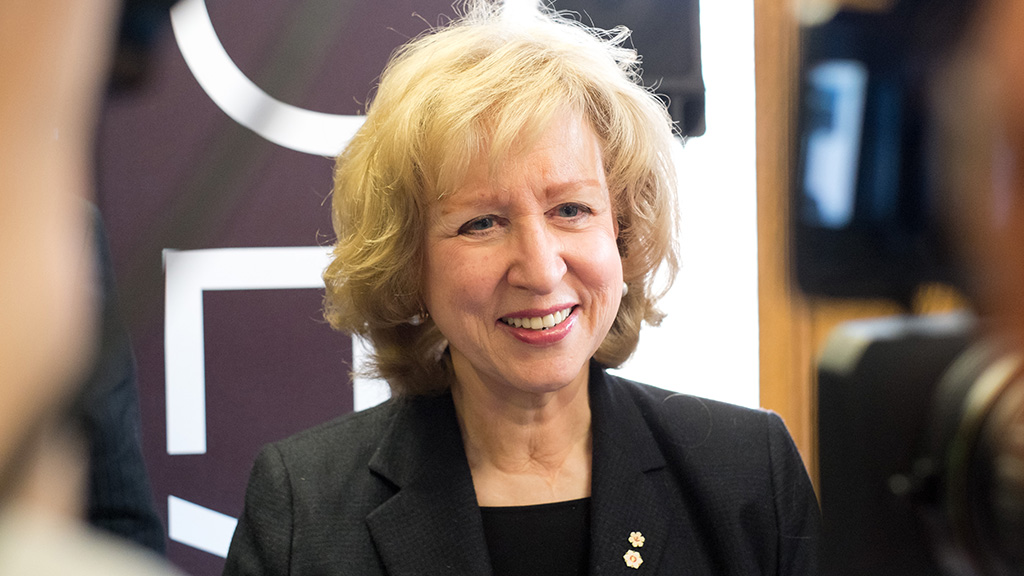Former PM Kim Campbell shows there’s more to leadership than what can be taught
 Ab Sch
Ab SchKim Campbell earned the title of a “leader” throughout her illustrious career. So much so, she was announced as the founding principal of the Peter Lougheed Leadership College last April.
Despite scepticism about the new college, Campbell seems confident that leadership can be taught. “All leaders have been taught,” she said during a guest lecture in October. “Leadership is taught … It should be taught — and in this new initiative, it will be taught.”
In her 1996 memoir Time and Chance, Campbell recounts how she became Canada’s first female Prime Minister, as well as a number of other firsts in Canadian politics. I agree somewhat with what she said. There are certain skills, tactics and methods that can be related to students to guide them toward leadership, while saving them time, energy and failure. For example, she recounts in her book that in order to develop confidence when confronted with a journalist’s nasty remarks (an important quality in leaders), Campbell would think about the words of her friend Myles: “No one should have to put up with this sort of trash.”
Yet I still vehemently disagree with this new leadership college.
Like any form of education, leadership requires training from a teacher and self-motivation from students to learn. But unlike the comparatively more passive learning, leadership requires an uncommon amount of personal motivation, determination and communicative capability. These qualities can be encouraged and practiced in the classroom, but must ultimately be perfected beyond school.
Campbell’s experiences prove this statement. In many instances in her narrative, she seems largely self-made. After her mother left her family when she was 12, for example, Campbell writes “the self-reliance that characterizes (girls whose mothers are gone) is a necessary result of there not being anyone you can count on. Developing the habit of doing things for yourself reduces the pain of acknowledging that fact.”
The “uncommonness” of leaders here is important, and I don’t mean the personal tragedy affecting a leader. I mean that in order to realistically teach any sort of leadership requires elitism. And this is something we just can’t afford right now. This college is arriving at a terrible time, after, for example, several of the most experienced English professors at the U of A have been bought out. The English department at the U of A has the potential to be like Economics at the
University of Chicago or Classics at U of T — one of the renowned Arts departments at a certain institution. What’s more, this change affects all students since every student takes English courses.
What has happened is that a core, mutually beneficial department has been weakened as a result of the university cutting its budget after receiving less money from the province, while a few months later, the province granted $35 million to the Peter Lougheed Initiative, part of which will go toward this new college. And benefit significantly less students.
Conspicuous consumption plays a role here. The university likes new sexy buildings, like the new fitness centre. The University is making it seem like its priorities lay in future investment to attract more students before properly educating the students already here. Campbell even admits leadership isn’t an academic discipline. Let me say to her that the first floor of Humanities is virtually empty after 4 p.m. Leadership class, whatever that means for her, can happen there.
The Peter Lougheed Initiative is really behind this. They want a building to commemorate the legacy of their namesake. So I suggest we name the new fitness centre after him. As for Kim Campbell, give her a job in the Political Science department, but she’s only allowed to work in Humanities. Maybe she can persuade the Peter Lougheed Initiative to install office telephones in that building.




